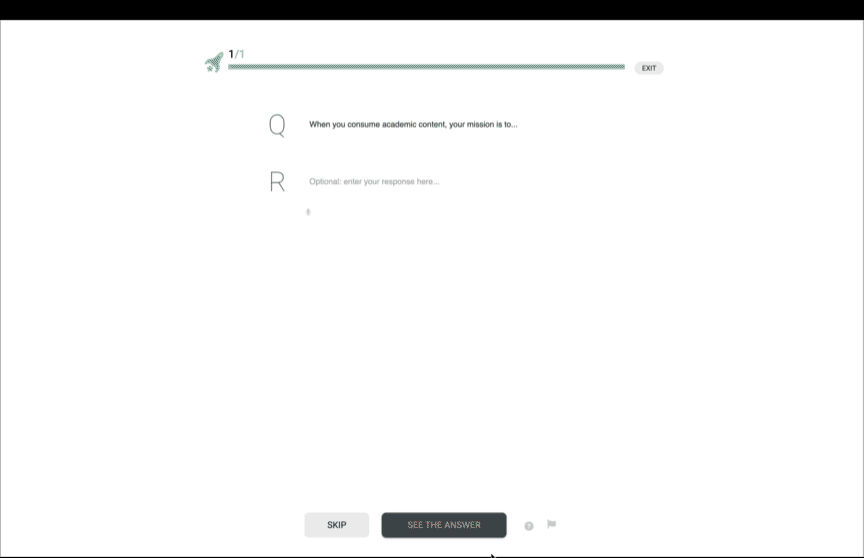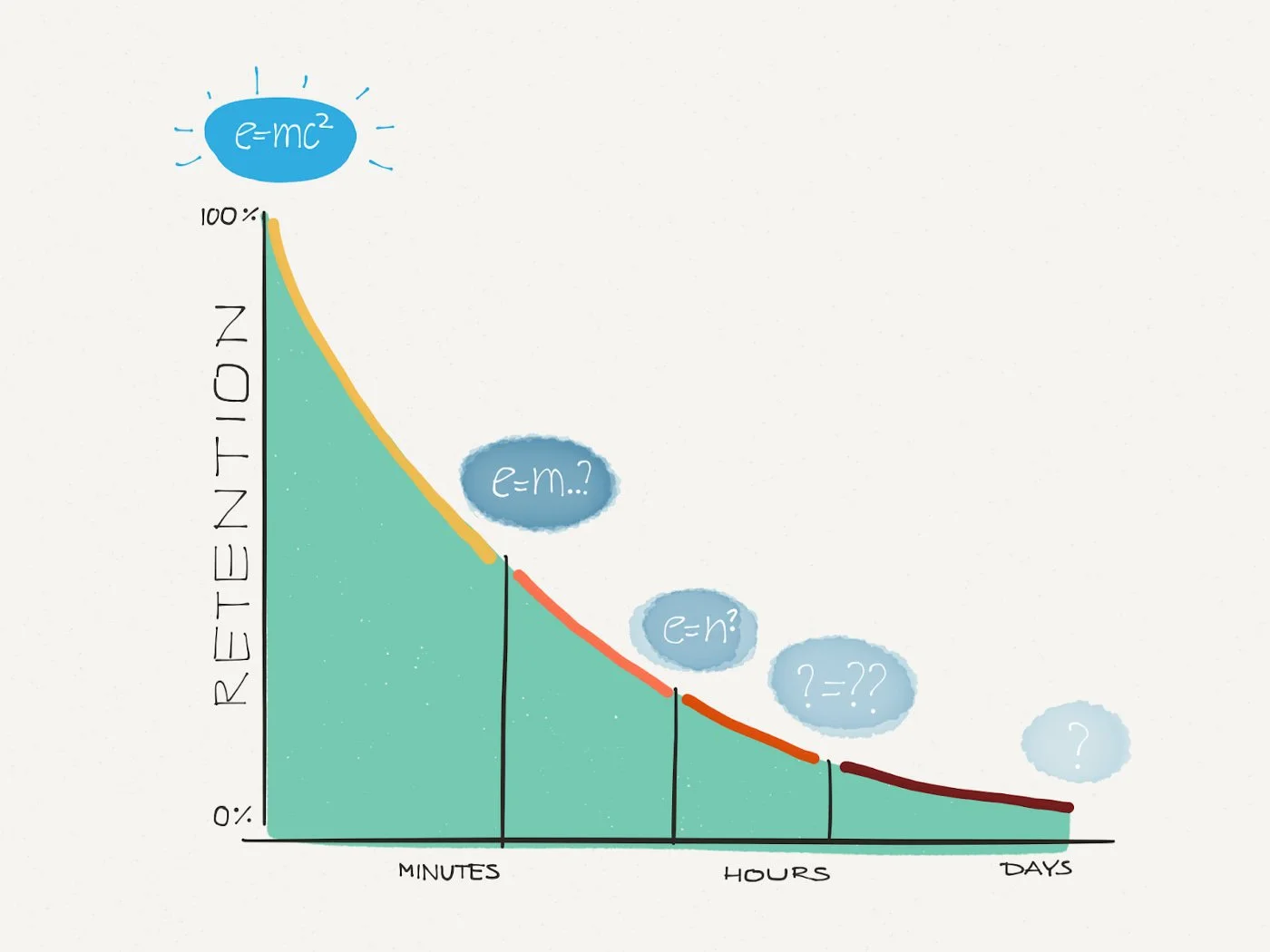GUEST POST: Free Comprehensive Flashcards Sets for Most OpenStax Textbooks
By David Handel
Hi, I’m David Handel, MD. I‘m the CEO and co-founder of iDoRecall.com. I’ve had the honor of writing previous guest posts on this blog in the past (see this post, for example). In today’s guest post, I’ll be sharing more about iDoRecall, highlighting exciting new free resources that are available to all students, teachers, and other educators!
What is iDoRecall?
iDoRecall is a unique spaced repetition flashcard app that enables you to create flashcards linked to the relevant location in your learning materials, where you just learned something, and you want to ensure that you’ll remember it. When you practice memory retrieval, if you struggle to recall the answer, click the source button, and the source learning content will open at the exact, relevant location.
If the source is a Word file, PDF, or PowerPoint, that file will open at the linked location so that you can quickly refresh your memory exactly where you learned it. iDoRecall can link to the relevant time codes where you learn something while watching videos on YouTube, Coursera, Udemy, and other platforms. Click the source button during retrieval practice, and the video will open precisely at the time code where you learned it. If the source is content on a web page, that page will open and scroll to the linked location. If the source is a Kindle highlight, the link will open the eBook in Kindle Desktop App on the page with the highlight.
When you practice memory retrieval with iDoRecall, you can click the source button to
refresh your memory and view the linked learning file, video, web page or Kindle book. Animation from iDoRecall, provided by David Handel.
OpenStax, iDoRecall, and our free offer
OpenStax was born at Rice University in 2012. They are a not-for-profit dedicated to making education more affordable and accessible for all students. They create and publish high-quality, peer-reviewed, free high school and college textbooks. In ten short years, they have grown to become one of the major textbook publishers and have saved students and schools over 1.7 billion dollars. The books are licensed under Creative Commons and available to read online, download as PDFs, and read in mobile apps and printed textbooks.
Recently iDoRecall embarked on an ambitious project that led to our becoming an OpenStax EdTech Ally Partner. We hired subject-matter expert educators to create comprehensive sets of linked flashcards for most of the OpenStax textbooks.
Image provided by David Handel
We have made these flashcard sets available for 100% free use by you, your students, and your schools. We are also offering educators, just like you, the opportunity to obtain a free iDoRecall educator’s license that will enable you to monitor your students’ engagement and metrics as they use the OpenStax flashcards to learn and remember what they learn Please fill out this form if you are interested in this free license (that we usually sell).
My backstory is relevant to your struggling students
I’d venture to say that learning how to learn was more important than anything else I’ve ever learned.
The arc of my academic life. (Illustration by Lev Mazin, iDoRecall)
I was a mediocre student throughout my K-12 years. I graduated high school at the 50th percentile and only went to college because my parents expected it. I dropped out after my freshman year with a C-minus average. At age 19, I came up with the novel ambition that I wanted to be the first licensed under-21-year-old stockbroker in the US. While preparing for the licensure examination, I stumbled upon the efficacy of flashcards and retrieval practice. Duh! I nailed the exam. A few years later, I returned to college with retrieval practice at the core of my study regimen. I got straight A’s (except for eleven A pluses) for the remainder of my undergraduate career. I got into medical school and graduated #1 in my class.
I don’t know where I would be today if I hadn’t learned how to learn. Wouldn’t you love to have your struggling students able to recount a similar story someday? Dr. Barbara Oakley, creator of Coursera’s Learning How to Learn MOOC, shared that she has a similar backstory during a webinar that we presented with OpenStax.
Retrieval practice and spaced repetition are our most powerful tools for learning
Retrieval practice, especially in concert with spaced repetition, is an evidence-based effective tool for helping students learn and remember what they’ve learned. (As a reader of this blog, you already know this! Check out this recent blog post on retrieval, spacing, and long-term learning as an example.) Retrieval practice is not rote memorization. Without long-term memory of facts, concepts, formulas, terms, and definitions, we are unable to have a meaningful and rich metacognitive self-discussion in our working memory. We need this internal database to power our thought experiments and to drive our creativity. We need a broad and deep body of knowledge if we’re going to be successful adults who have something to contribute to society.
Without retrieval practice, the forgetting curve wipes away so much of what we’ve learned. (Illustration by Lev Mazin, iDoRecall)
A brief explanation of the cognitive and neuroscience
We have an excellent neuroscientific understanding (1) of how long-term memories are stored and made more robust by retrieval practice. Explicit memory represents the memories and knowledge that we can consciously retrieve.
The subset of explicit memory, known as semantic memory, is the long-term memory of facts and concepts. These memories are stored in the synapses of a relatively small collection of neurons that may be close together or dispersed throughout the neocortex of our cerebral hemispheres.
These neuronal collections, which many scientists call engrams, are activated when we retrieve that long-term memory into working memory. When we retrieve this memory, the engram is activated. Because of our brain’s astonishing neuroplasticity, the synapses in that engram are strengthened, and even more incredible; additional synapses may develop. We have been able to directly image this effect (2) in living lab animals. Whenever you retrieve a memory, you make it more easily retrievable in the future. This is a prime reason why retrieval practice strengthens our ability to recall that piece of knowledge.
There is however another effect to consider. Each time we retrieve a memory, we do so in a unique context. This context is a combination of the place, time, emotional state, other thoughts and events, current sensory inputs, and many other potential parameters.
When we consciously retrieve a memory, the unique current context may create or activate engrams that overlap the engram of the memory we’re retrieving. After all, a neuron may have many thousands of synaptic connections. These create opportunities for a neuron to participate in many different engrams. This explains why one thought leads to another. Our brains think by association. It’s the embodiment of the old neuroscientific maxim, “neurons that wire together, fire together.”
Every time you retrieve a memory, the current context may create a new pathway for retrieving that memory in the future. The more routes we create through retrieval practice in unique contexts, the easier it’ll be in the future to bring that memory into consciousness on demand.
I would be remiss if I didn’t mention that there is another important type of memory called procedural memory which with worthy of a separate discussion, but we’ll leave that for another day.
Key Takeaways
Retrieval practice combined with spaced repetition are proven power tools for learning and helping us to remember what we’ve learned.
iDoRecall takes spaced repetition flashcards to the next level by enabling you to link each flashcard to the exact location where you learned that piece of knowledge. This makes it easy to refresh your memory, if needed, during retrieval practice.
iDoRecall has created comprehensive linked flashcard sets covering the essential facts, concepts, and formulas in over forty OpenStax textbooks. When you click the source button, a PDF of the textbook will open at the exact relevant location. Students, educators, and schools can use these flashcards for free.
If you are an educator and would like to obtain a full educator’s license for free, fill out this form.
Even if you don’t desire an educator’s license, please share the news of our free compressive flashcard sets with your students, personal network of educators, and parents. You can see our collection here and learn much more on our YouTube channel.
References:
(1) Josselyn S. A., & Tonegawa S. (2020) Memory engrams: Recalling the past and imagining the future. Science, 367(6473). https://doi.org/10.1126/science.aaw4325
(2) Roy, D. S., Arons, A., Mitchell, T. I., Pignatelli, M., Ryan, T. J., & Tonegawa, S. (2016). Memory retrieval by activating engram cells in mouse models of early Alzheimer’s disease. Nature, 531(7595), 508-512. https://doi.org/10.1038/nature17172







